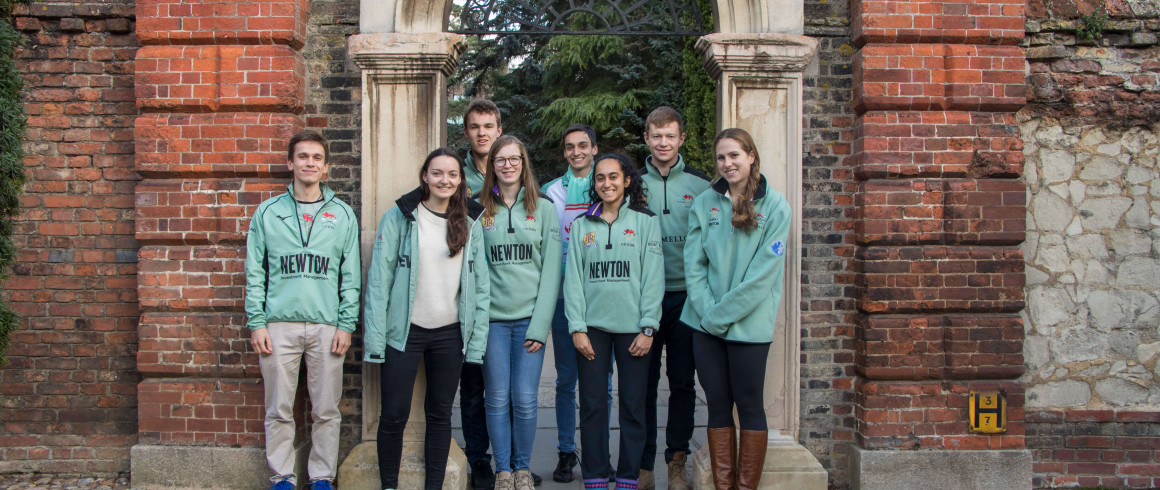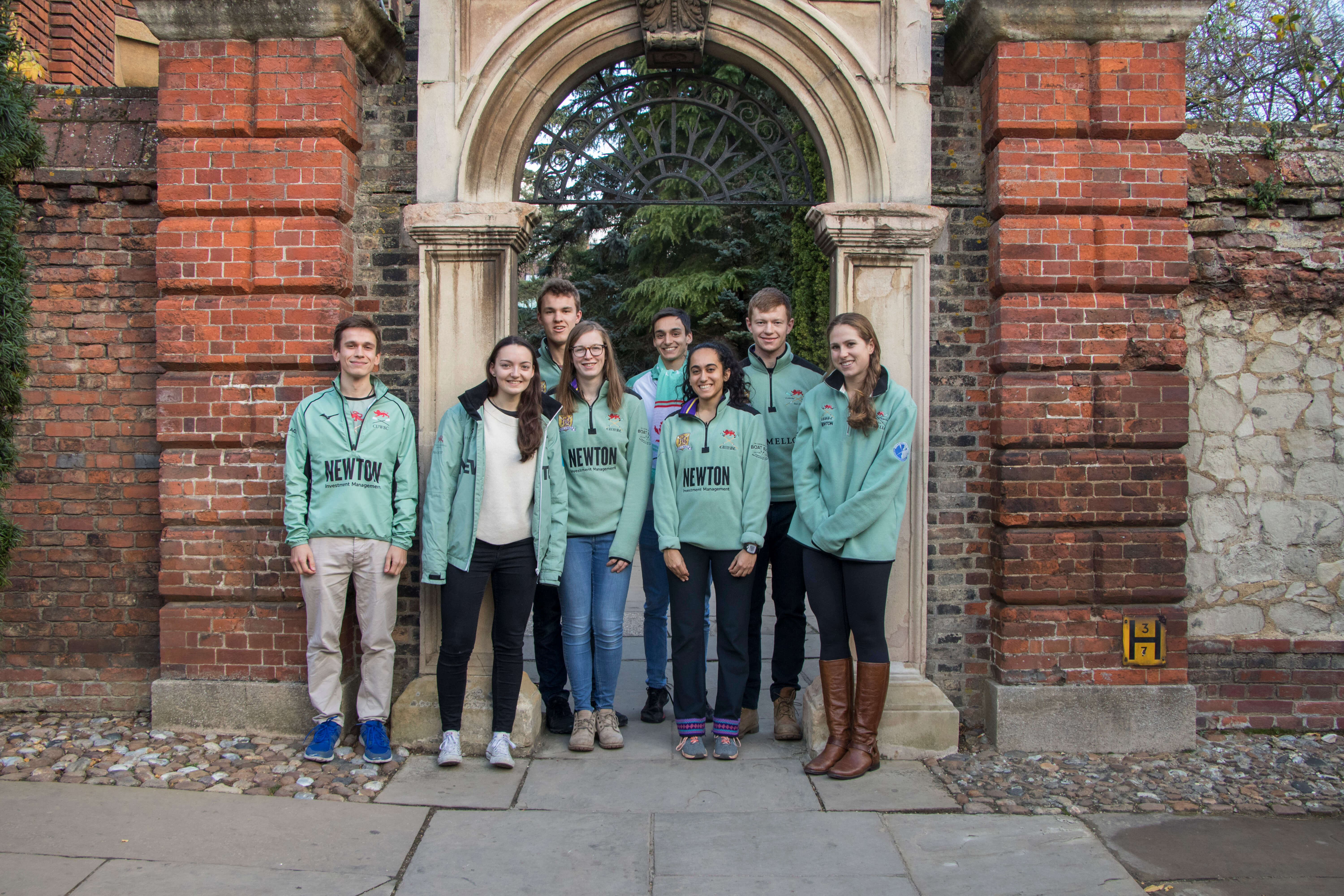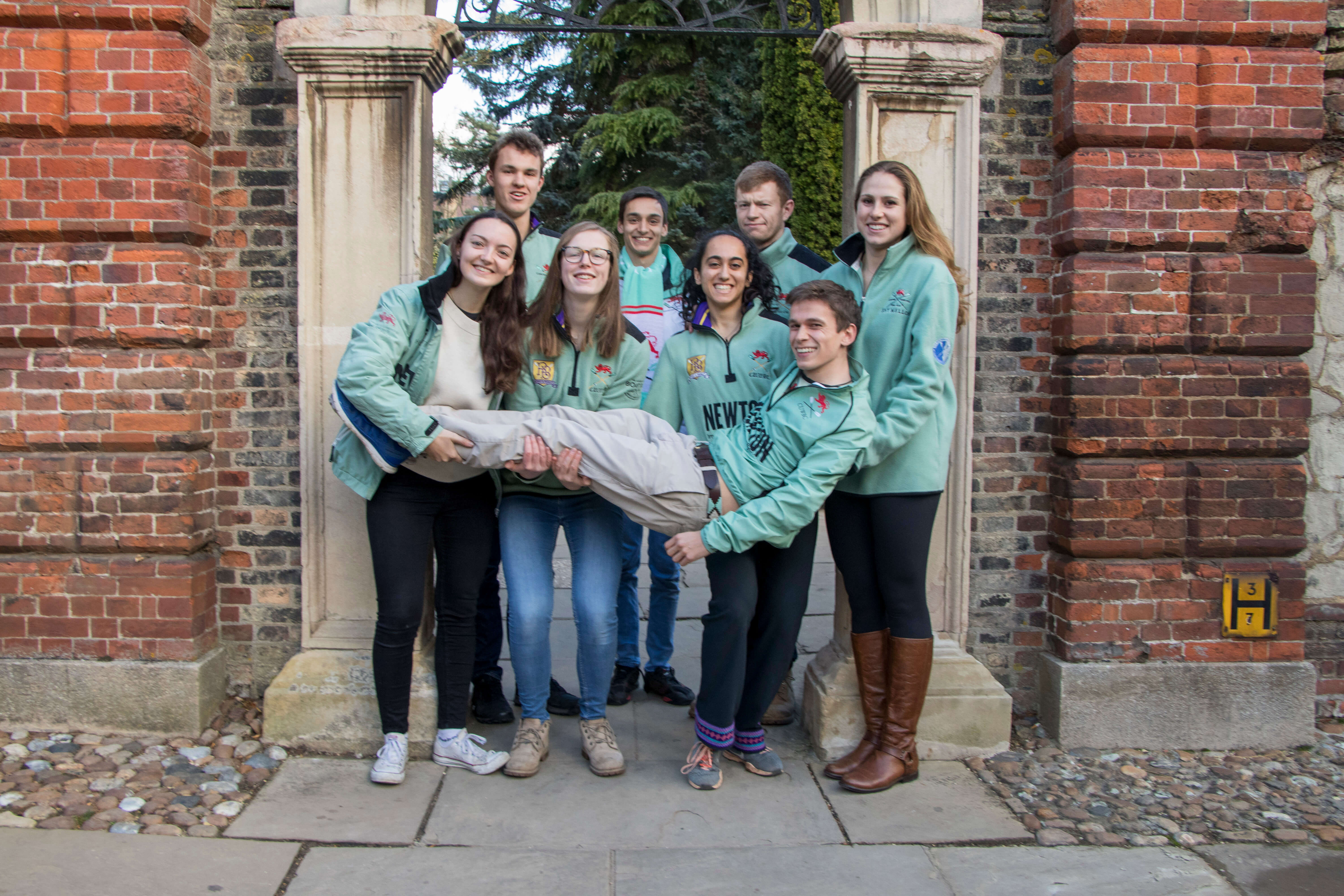Meet the Athletes: Cambridge Rowing
Rowing is a big part of life in Cambridge. Whether it’s College rowing, town clubs, or the Boat Race itself, huge numbers of people take to the river every year.
We’re delighted that eight of our students are trialing for the Cambridge University squads this year. They’re studying a range of subjects, are at different stages of their degrees, and have had various pathways into rowing, but they’re all talented athletes who are driven to be the best they can be.
- CUBC (openweight): Rob Harris (2017), Jonty Page (2016)
- CULRC (lightweight): Jonathan Vibhishanan (2016)
- CUWBC (openweight): Emma Andrews (2016), Lily Lindsay (2018)
- CUWBC (lightweight): Lata Persson (2017), Laura Stewart (2018)
- Cox (CULRC/CUWBC): Jack Mason (2016)
Left to right: Jack, Laura, Jonty, Emma, Jonathan, Lata, Rob, Lily
For those students who have been rowing for years the change to rowing for Cambridge is relatively small. Lily, who’s been rowing since she was 11, is an MPhil student who learned to row in the US, but finds familiar structures in Cambridge rowing:
“It’s very similar to other elite rowing structures around the world so it’s something that’s very comfortable, even if you’re in a new place, to have that setup and that support network that you’re used to even though it’s a different university and a different institution.”
It’s rarer for rowers to go from College rowing to University rowing because there’s a big jump between the two. A number of Pembroke students, like Jonathan and Jonty, rowed with the College before trialling. Jonty described the differences between the two:
“You go from having very little structure and a coach that is probably a guy from college who’s two years above you, to a very professional training programme, and a professional setup around you coaching you to be the best you can be. That step up is huge and that makes it quite difficult.”
It’s not just the rowers who have to adjust. For coxes like Jack there are also adjustments to be made, although the core of the job remains the same:
“There’s always an emphasis on steering, planning and control, but there are different demands of what they want from you. If you train in Cambridge in first year there’s a lot of corner training and it’s about cutting it fine, whereas you go to Ely and it’s just straight line racing for months on end before going down to London and doing something completely different again. The main difference is the demands on you in terms of how prepared you are, in terms of race plans, coming to each session with knowledge of the technical processes.”
Luckily, there’s a strong support team around the rowers to help them navigate training. For Laura the support offered by CUWBC is one of its strengths, allowing rowers to progress quickly. Emma has been discovering how much work goes into running the Cambridge clubs, as she’s currently Vice-President of CUWBC, and despite all the admin she’s enjoying it: “You’re helping towards the bigger picture and the benefits you get are seeing how it runs behind the scenes.”
There's also people like Jonathan working to ensure that the teams come together as well as possible. This year he and the Junior Committee worked with sports psychologists to work out the key elements of a strong team:
"It boils down to being responsible for your own A-game, bringing that to every session, every practice, while trying to foster an environment that pushes everybody else on as well. You want to be doing your best but you want to be doing that in a way thjat pushes everybody else up with you. This year that’s been an attitude that you can see throughout the whole squad, lightweights and openweights, in that, although there’s competition for seats, that doesn't seem to be taking over. The main focus is for everyone is, how am I progressing as a rower, and how am I making those around me progress? And that’s what makes a good crew."
There’s a lot that’s tough about rowing at the University level – early morning training sessions, hard physical work, let alone fitting it all in around academic studies. But there’s also a lot to love about rowing, and it’s clear from talking to these rowers that being a part of the Cambridge squads is a deeply rewarding experience. Here are some of their favourite things about rowing:
Emma: “I think the best thing about rowing is when you’re in a crew and you know that the crew is going better than it would if you weren’t together. You can achieve so much more in a crew than you can on your own, but also it goes so well that you think, if any individual was doing this with others it wouldn’t be so good, it’s only because we’re together that we’re this good. When it clicks, that’s the best thing.”
Lata: “Getting to be around people with a similar mind-set to you, who are competitive, and all striving towards the same goal. Getting to do that with other people who are just as driven with you is not something you get elsewhere. And you’re doing it with some of the best facilities and coaches you can have.”
Jonathan: “I think the best thing is being able to push my body to its absolute limit and keep progressing that. I’m spurred on by the fact I know my squad are doing the exact same thing, all thinking, what’s the maximum I can get out of my body today, at this training session. I think being able to see the progression in what you can do, that’s great.”
Lily: “The best thing about rowing is being on a team and working alongside your friends and your boat mates, it always brings friendship to a different level. Having that, for a lot of us who are only here for a year or a few years, makes Cambridge a better place. You have a group of people that you work alongside day by day, doing something that is pretty out of the ordinary and above and beyond what most people put their bodies through. It fosters a different kind of connection between people. I think teams are the best.”


